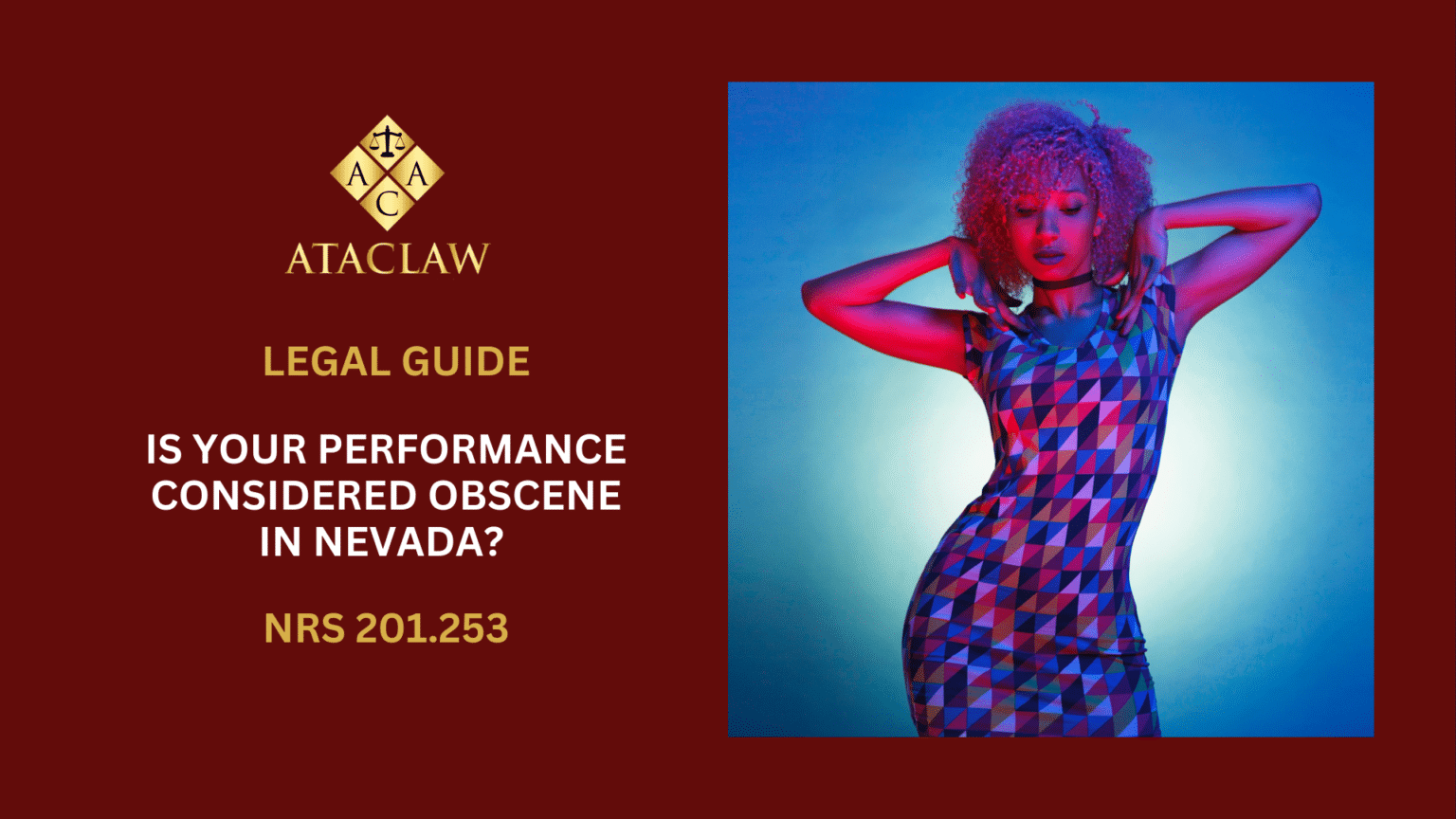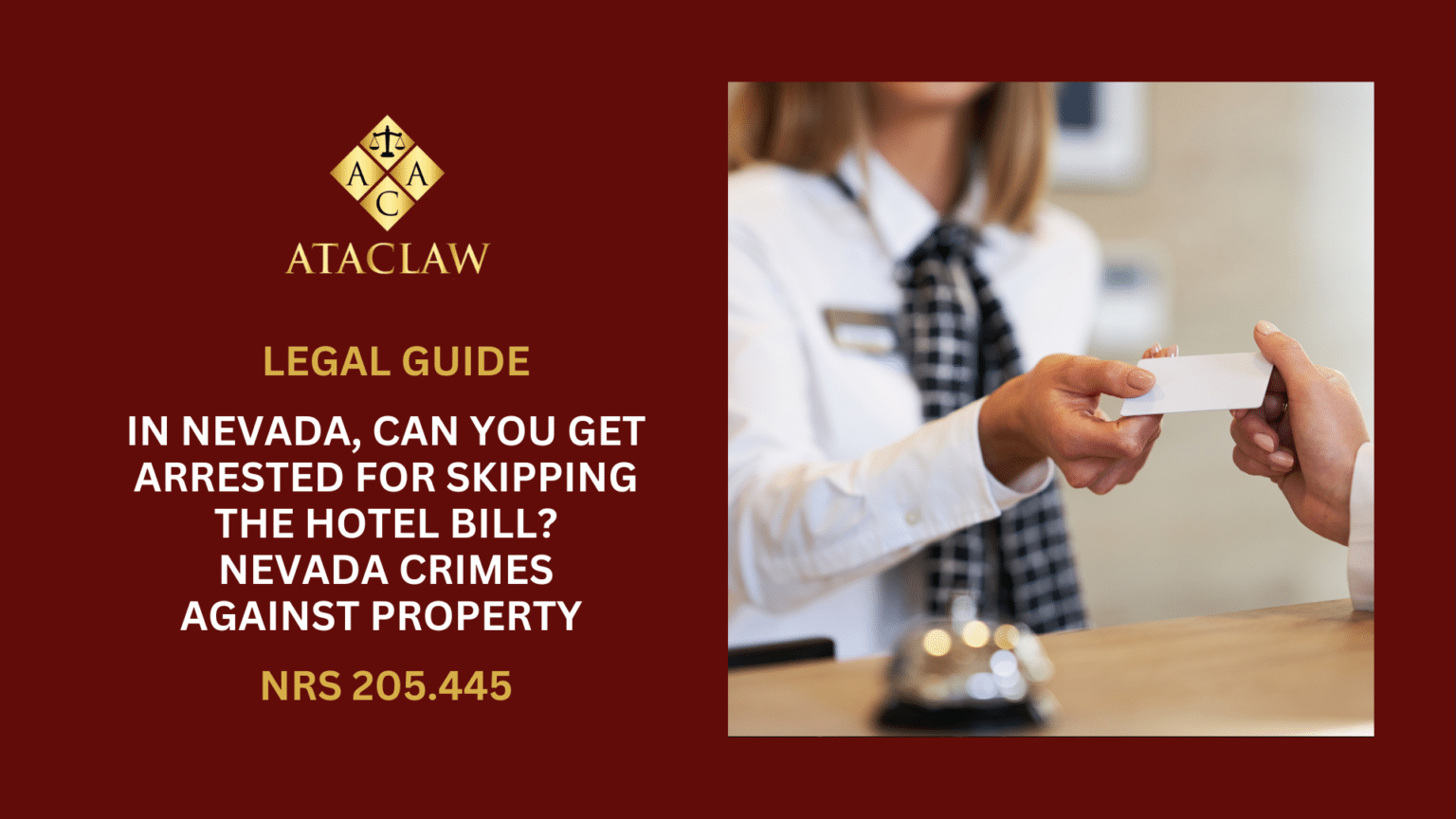In Nevada, a state renowned for its dazzling shows and vibrant nightlife, understanding the boundaries of what is legally permissible is crucial for entertainers, promoters, and venues. At the heart of this legal landscape is NRS 201.253, a statute that delineates the fine line between acceptable performances and those considered obscene under Nevada law. For entertainers and event organizers, being knowledgeable about this law is not just about staying on the right side of legal requirements—it’s about safeguarding the artistry and expression that make Nevada’s entertainment scene thrive. At ATAC LAW, we’re committed to unpacking the nuances of NRS 201.253, guiding you through its implications, and ensuring that your performances not only mesmerize audiences but also comply with state law.
What Constitutes an Obscene Performance Under NRS 201.253 in Nevada?
In the state of Nevada, a specific statute, NRS 201.253, outlines the legal framework around performances deemed obscene, instituting clear boundaries for entertainers and promoters. According to this law, engaging in or facilitating an obscene show is deemed criminal if done knowingly. The essence of obscenity, according to Nevada’s legislation, hinges on three pivotal criteria:
1. Community Standards of Decency: The performance must be such that an ordinary individual, through the lens of modern societal norms, perceives it primarily as an appeal to lewd interests.
2. Lack of Meritorious Value: It should have no significant value in any serious literary, artistic, political, or scientific domain when assessed in its entirety.
3. Explicit Content: The act must explicitly portray or describe, in a clearly offensive manner:
- Sexual behaviors, whether conventional, unconventional, real, or simulated.
- Acts of masturbation, bodily waste functions, or themes of sadism or masochism.
- Indecent exposure of private body parts.
It’s important to understand that Nevada’s threshold for what is considered obscenely illegal under this provision is notably high. The renowned strip shows of Las Vegas, for example, do not typically breach this threshold and are, therefore, lawful.
However, the statute also acknowledges certain exemptions. For instance, individuals such as stagehands or movie projectionists, who may unintentionally be part of an obscene production, are not necessarily liable under this law. This leniency applies provided that the objectionable content is part of their contractual job and they possess neither a financial stake in the production outside of their salary nor any managerial duties at their workplace.
What Are the Consequences of Staging an Obscene Show in Nevada?
The legal system in Nevada takes a clear stance on the participation in or production of obscene performances, categorizing such actions as misdemeanors. The consequences for these offenses are straightforward yet significant, aiming to deter any engagement with content deemed obscene under state law. Specifically, individuals found guilty of these charges face:
- A potential incarceration period of up to six months; and/or
- Monetary fines reaching up to $1,000.
It’s crucial to note that the severity of the penalties does not vary based on the frequency of offenses; first-time offenders are subject to the same punitive range as those with previous convictions.
However, the legal repercussions escalate substantially when the obscene content involves minors. In such instances, the charges advance to the more grave category of child pornography, reflecting the increased societal and legal seriousness of exploiting minors in any context.
Furthermore, prosecutors in Nevada are equipped with the authority to pursue judicial interventions against obscene performances. They can request the court to issue an injunction aimed at ceasing the production or showing of the obscene content. Should the individuals responsible for the show—be they managers, owners, or promoters—ignore this legal order, they risk not only the initial misdemeanor charges but also the forfeiture of any profits earned from the show post-injunction.
How Can You Defend Against Charges of Obscene Performances in Nevada?
Challenging accusations under Nevada’s NRS 201.253—a law addressing obscene performances—is feasible due to several robust defenses. Legal professionals often find that these defenses make it unlikely for prosecutors to press charges. Here are key strategies to contest such allegations effectively:
1. Lack of Knowingly Participating
If your involvement in a performance that later became obscene was without your knowledge or consent, you can contest the charges on this basis. Demonstrating that you were unaware of the obscene nature of the show is crucial. If prosecutors cannot prove your knowledge of the obscene elements, the charges typically cannot be substantiated.
2. Questioning the Obscenity of the Show
Obscenity often resides in a gray area of subjective opinion. Law enforcement does not have the final say on moral standards, and what might be considered in poor taste does not automatically qualify as obscene. By challenging the classification of the performance as obscene, you can argue that the show did not reach the threshold set by state law.
3. Protection Under the First Amendment
The First Amendment’s protection of free expression is a powerful defense. The U.S. Supreme Supplement has upheld that performances, including dance shows that feature nudity, can qualify as protected expression. Unless the show includes explicit sexual acts or involves minors either participating or in the audience, it is likely to be deemed legal under federal guidelines.
What Are the Requirements for Sealing a Record for an Obscene Show Conviction in Nevada?
You can seal the criminal record of an obscene show conviction one year after the conclusion of the case. However, if the charges are dismissed, you can immediately seek to have the record sealed without any waiting period.
Are you curious about how these laws might affect your next Nevada event, or need representation against related charges? ATAC LAW is ready to illuminate the path forward with comprehensive legal support.
For further legal assistance and to discuss your case with an expert, don’t hesitate to contact ATAC LAW.




